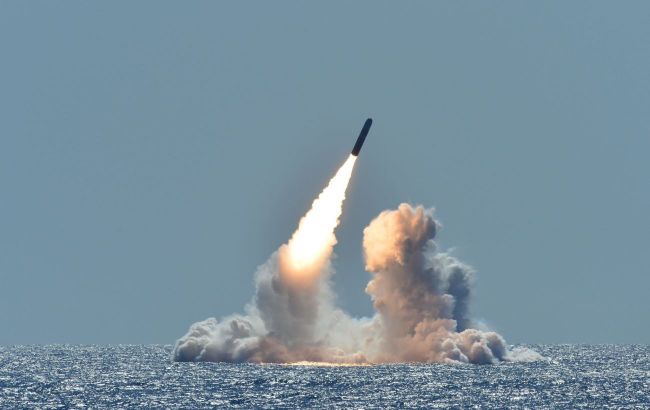UK to conduct first nuclear missile launch since 2016
 Photo: Launch of the Trident II D5 missile in 2008 (flickr.com/compacflt)
Photo: Launch of the Trident II D5 missile in 2008 (flickr.com/compacflt)
The UK will conduct a test launch of a nuclear missile. This will be the first missile launch since the unsuccessful attempt in 2016, according to The Sun.
The Royal Navy will conduct a test launch of nuclear weapons over the next few days.
Official warnings were issued to maritime traffic as the nuclear submarine HMS Vanguard entered the Atlantic this week.
The submarine is set to carry out a test launch of an unarmed missile after completing a seven-year overhaul in Plymouth. The test is the final hurdle for HMS Vanguard to rejoin the British nuclear deterrent fleet.
The HMS Vanguard submarine can carry up to 16 Trident II D5 missiles, each armed with multiple warheads of British manufacture, exceeding in power more than 20 times the weapons dropped during World War II on Hiroshima and Nagasaki in Japan.
It is expected that the submarine will be able to launch an unarmed missile from a distance of 90 km from the eastern coast of the United States.
The U.S. National Geospatial-Intelligence Agency issued a warning to maritime traffic, indicating the predicted course of the missile toward a collision in the mid-Atlantic. The missile is expected to cover approximately 6,000 km before falling into the sea between Brazil and West Africa.
Russian attack on NATO
Recently, there have been a series of materials in Western media about Russia's plans to attack NATO countries. Scenarios and infographics were published, and officials have already begun urging preparation for a possible war.
The discussion began after the article in Bild, which allegedly obtained a secret document Alliance Defense 2025.
The head of the German Federal Intelligence Service, Bruno Kahl, also stated that Russian dictator Vladimir Putin would not hesitate to attack NATO. If Ukraine were forced to surrender, it would not quench Russia's thirst for power.
For more details on the military capabilities of Russia and NATO, as well as how the conflict could develop, refer to the material by RBC-Ukraine.

